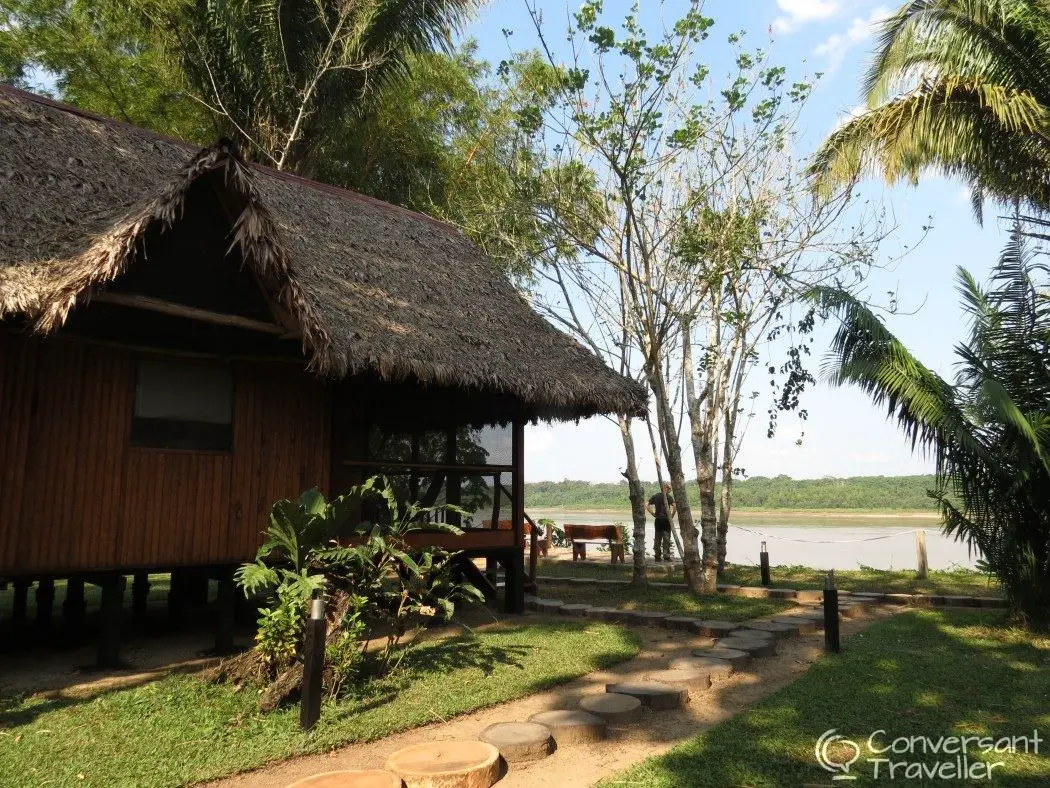Understanding Eco-Friendly Travel
Eco-friendly travel is about exploring the world while caring for nature and local communities. It’s a way to enjoy new places without harming them.
Defining Sustainable and Responsible Travel
Sustainable travel means going on trips that don’t hurt the environment. You try to leave places as good as or better than you found them. This can include staying at green hotels, using less energy, and not creating a lot of waste.
Responsible travel goes a step further. You think about how your visit affects local people and their culture. You might buy things from local shops or learn about the area’s traditions. Both travel methods strive to look after wild places while supporting local economies. They help make sure beautiful places stay that way for future travellers to enjoy.
The Role of Eco-Tourism in Conservation
Eco-tourism helps save plants, animals, and special places. When you visit natural areas as an eco-tourist, your money often goes to protect them. This can fund park rangers, animal rescue, or habitat restoration. Eco-tours teach you about nature and why it’s important. You might learn about rare animals or how forests clean our air. This knowledge can make you want to help the planet even after your trip.
Many eco-tourism spots limit visitor numbers. This keeps these areas from getting too crowded or damaged. By choosing eco-tourism, you’re helping to keep our planet healthy and beautiful for years to come.

Why Eco-Friendly Travel Matters
Eco-friendly travel helps protect the places you visit and the people who live there. It lets you explore while doing good for the planet.
Impact on Local Communities and Cultures
When you travel in an eco-friendly way, you support local people and their way of life. You might stay at family-run hotels or eat at small restaurants. This puts money right into the community.
You can also learn about different cultures first-hand. Try local foods, join in festivals, or take classes to learn traditional skills. This helps keep unique customs alive. Eco-travel creates jobs for local people too. They might work as guides, drivers, or artisans. This gives them a way to earn money without harming nature.
Mitigating Negative Effects on Ecosystems
Your eco-friendly choices protect the natural world. When you visit fragile places, like coral reefs or rainforests, you can help keep them safe. Pick tour companies that follow rules to protect wildlife. Don’t feed wild animals or get too close to them. This keeps them acting naturally and healthy.
Use less plastic and take your trash with you. This stops litter from hurting animals or polluting water. Choose activities that don’t damage plants or disturb habitats. By treading lightly, you help keep ecosystems in balance. This protects the homes of countless plants and animals.
Combatting Climate Change and Pollution
Your travel choices can help fight climate change. Pick greener ways to get around, like electric car or bikes. When you must fly, choose direct flights to use less fuel. Stay in eco-lodges that use solar power or save water. These places often teach guests about saving energy too. You might learn new habits to take home with you.
Buy local products to cut down on shipping. This means less pollution from trucks and planes. It also supports local farmers and makers. Every small action adds up. By traveling green, you’re part of the solution to big problems like pollution and climate change.
How to Travel Sustainably
Traveling sustainably helps protect the places you visit and reduces your environmental impact. You can make a big difference through your choices in transportation, lodging, and activities.
Choosing Eco-Friendly Accommodations
Look for hotels and rentals with green certifications. These places often use renewable energy, reduce water waste, and recycle. You can also try eco-lodges or camping to get closer to nature.
Check if your lodging uses local products and hires local staff. This supports the community you’re visiting. Some places offer bike rentals or have strong ties to local tour guides.
Ask about their sustainability practices before booking. Do they use energy-efficient lighting? Do they have a composting program? Little details can add up to make a big impact.

Reducing Carbon Footprint While Traveling
Take direct flights when possible. Take-offs and landings use the most fuel, so fewer stops means less pollution. Pack light to reduce the plane’s weight and fuel use. Use public transit, walk, or bike at your destination. Many cities have great bus or train systems. Renting a bike lets you see more while staying green.
If you need to rent a car, choose an electric or hybrid vehicle. With the popularization of new energy sources, solar charging piles can be found everywhere, and they use solar batterys to store energy, so you don’t have to worry about your electric car running out of power at all!
Engaging with Local Economies and Businesses
Buy from local shops and markets. This puts money directly into the community. Try local foods and crafts to get a real taste of the culture. Choose tours run by locals. They often know hidden gems and can share authentic stories. Make sure any wildlife tours follow ethical guidelines.
Stay in family-run guesthouses or small hotels. These often have a lower impact than big resorts. You’ll also get more personal service and local tips. Learn a few words in the local language. This shows respect and can lead to richer interactions. Ask locals for recommendations on sustainable businesses to support.
Economic and Social Benefits of Green Travel
Green travel helps local economies and keeps traditions alive. It creates jobs and lets you experience real cultures up close.
Supporting Economic Development through Tourism
When you travel green, you boost local economies. Your money goes straight to small businesses and communities. This creates jobs for locals in hotels, restaurants, and tour companies. You might stay at a family-run inn or eat at a local cafe. These choices keep money in the area.
Green travel also spreads tourism to less-visited places. This brings income to rural areas that need it. You could visit a small village and buy handmade crafts. This helps artisans keep their skills alive.
Preserving Cultural Heritage and Authentic Experiences
Green travel lets you dive into local culture. You can join in festivals or learn traditional crafts. This keeps old customs alive and valued. When you stay with locals, you see real life up close. You might cook a meal with your host family or learn local dances. These deep connections help you understand the place better.
Green travel also protects historic sites. The money from your visits helps maintain old buildings and artifacts. You get to see these treasures, and future travelers will too.

Green Travel Initiatives and Certifications
Many travel companies and destinations now offer eco-friendly options. You can find green hotels, tours, and transportation that help protect the environment. Special groups also check if places are truly sustainable.
The Role of Certifying Bodies in Sustainable Tourism
The Global Sustainable Tourism Council (GSTC) sets the benchmark for travel that’s sustainable and eco-friendly. They check if hotels and tour companies follow good practices. When you see their stamp, you know a place is really green.
Other groups like The International Ecotourism Society also help. They teach people about eco-travel and give out awards. These groups make sure companies don’t just say they’re green without proving it.
You can trust these certifications when planning your trip. They show which places truly care about the planet.
Innovations in Eco-Conscious Travel Practices
Travel companies are finding new ways to be kind to the earth. Some hotels now use solar power with a sustainable solar battery system or wind energy. This cuts down on pollution from regular electricity.
Tour companies are getting creative too. They might use electric vehicles or bikes for city tours. Some even plant trees to make up for the carbon from your flight.
You can join in by choosing these options. Stay at hotels that save water and energy. Pick tours that support local communities. Every small choice helps make travel better for the planet.
Challenges and Solutions in Eco-Friendly Travel
Eco-friendly travel faces hurdles, but innovative solutions are emerging. You can play a key role in making tourism more sustainable through simple changes and thoughtful choices.
Addressing Overtourism and Preserving Natural Areas
Overtourism puts a strain on popular destinations. You might notice crowded beaches or long lines at famous landmarks. To help, consider visiting less-known spots or traveling during off-peak times.
Look for eco-lodges that work to protect the local environment. These places often use green practices like solar power and water conservation.
When exploring natural areas, stick to marked trails. This helps prevent damage to plants and wildlife habitats. Carry a reusable water bottle and snack containers to cut down on litter.
Some tour companies now offer small group trips to reduce impact. These can give you a more personal experience while helping preserve delicate ecosystems.
Evolving Consumer Habits towards Sustainability
Your travel choices make a big difference. Opt for hotels that have gotten rid of single-use plastics. Carry personal toiletries in reusable containers rather than using disposable bottles of things like hair products.
Look for places with good recycling programs. Some hotels now offer bins in rooms to make sorting waste easier. Try local, plant-based meals to lower your carbon footprint. Many restaurants and cafes are starting to include more plant-based and eco-friendly dishes to their menu offerings.
Choose activities that don’t harm nature, like hiking or kayaking. These let you enjoy beautiful places without causing damage. When shopping, pick souvenirs made from sustainable materials. Avoid items that might come from endangered species or fragile ecosystems.





